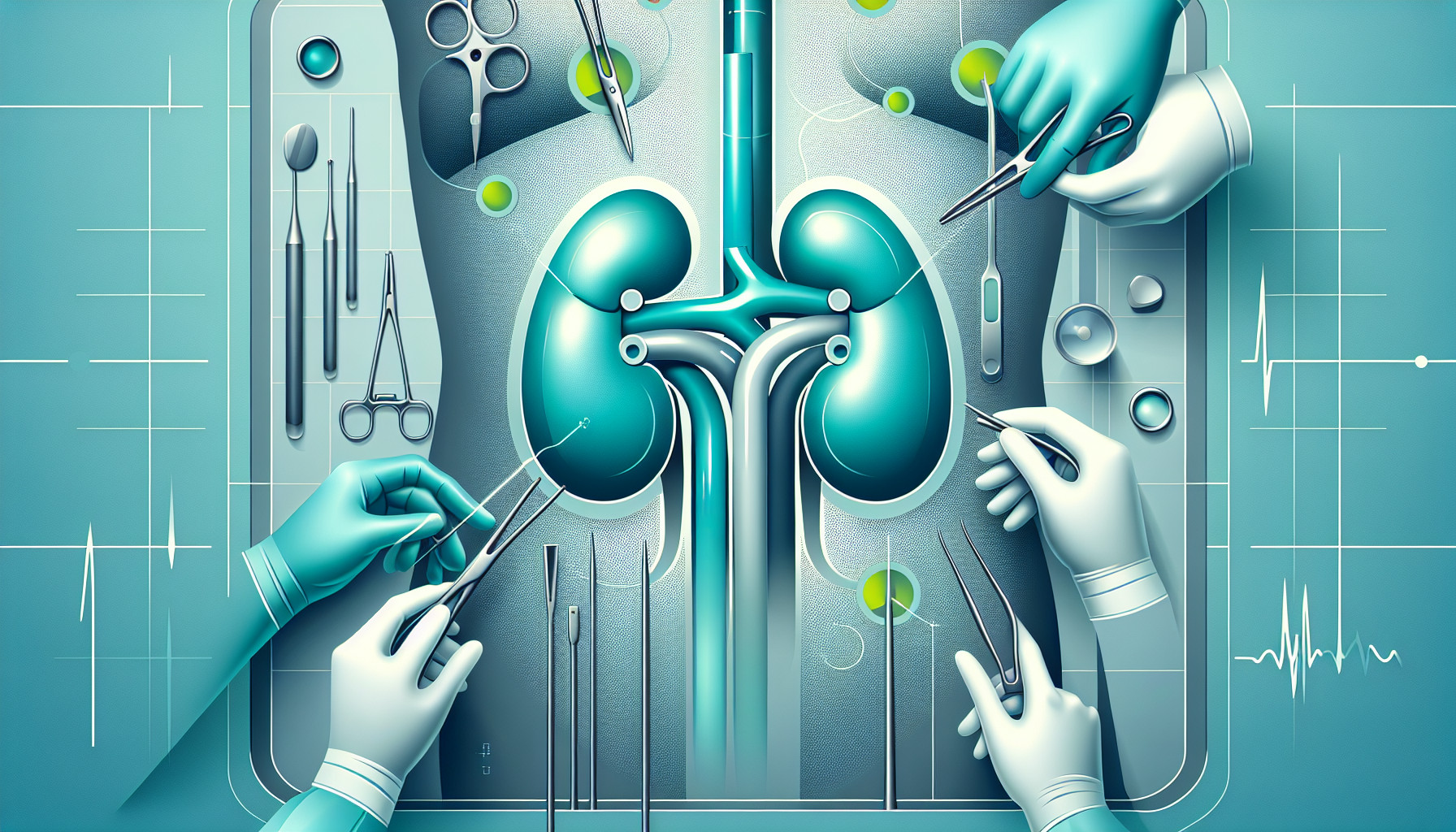Our Summary
This research paper discusses the complications and challenges of kidney transplantation, a process often used as a treatment for patients with severe kidney disease. While the number of transplants performed each year is increasing, there are not enough available kidneys from deceased donors to meet the growing demand. This often results in long waiting times for patients. By the time they receive a transplant, many patients have developed other health issues, particularly heart-related complications. These issues can be further complicated by the immune system suppression that occurs after a kidney transplant.
The paper highlights that patients who have received a kidney transplant may require intensive care due to complications like heart problems, infections, and breathing difficulties. Other complications related to immune system suppression, such as blood clotting disorders and a condition that causes temporary brain swelling, may also necessitate intensive care.
The paper emphasizes the need for medical professionals to understand the unique risks and anatomical considerations of patients who have received a kidney transplant in order to properly manage these potential complications. By recognizing and appropriately managing these complications, the survival outcomes for both the transplanted kidney and the patient can be improved.
FAQs
- What are some of the complications that can occur after a kidney transplant?
- Why might a patient require intensive care after a kidney transplant?
- How can understanding the unique risks and anatomical considerations of kidney transplant patients improve survival outcomes?
Doctor’s Tip
A doctor might advise a patient who has undergone a kidney transplant to closely follow their post-transplant care plan, which may include taking immunosuppressant medications as prescribed, attending regular follow-up appointments, and maintaining a healthy lifestyle. They may also recommend avoiding certain medications or activities that could harm the transplanted kidney. It is important for patients to communicate any new or worsening symptoms to their healthcare team promptly in order to prevent and address potential complications.
Suitable For
Patients who are typically recommended for a kidney transplant are those with end-stage renal disease (ESRD) who have exhausted all other treatment options, such as dialysis. These patients may have a significant decline in kidney function, leading to symptoms such as fatigue, nausea, swelling, and difficulty concentrating. Those with diabetes, high blood pressure, or genetic disorders that affect the kidneys are also common candidates for kidney transplant.
In addition, patients who have a high likelihood of successful outcomes post-transplant, including those with good overall health and a strong support system, are often recommended for kidney transplant. Younger patients with fewer comorbidities are also considered good candidates for the procedure.
It is important for patients to undergo a thorough evaluation process to determine their eligibility for kidney transplant. This evaluation may include assessments of their overall health, medical history, and compatibility with potential donors. Patients who are deemed suitable candidates for kidney transplant are then placed on a waiting list to receive a donor organ.
Overall, patients who are recommended for kidney transplant are those who have exhausted other treatment options for their kidney disease and are likely to benefit from the procedure. By carefully selecting appropriate candidates for kidney transplant, medical professionals can improve the quality of life and long-term outcomes for these patients.
Timeline
Before a kidney transplant, a patient typically undergoes extensive evaluation and testing to determine their eligibility for the procedure. They may require dialysis to manage their kidney disease while waiting for a suitable donor. Once a donor kidney is found, the patient undergoes surgery to receive the transplant. After the surgery, the patient will require close monitoring and medication to prevent rejection of the new kidney.
After a kidney transplant, the patient will need to take immunosuppressant medications for the rest of their life to prevent their immune system from attacking the transplanted kidney. They will also need to attend regular follow-up appointments with their healthcare team to monitor the function of the kidney and address any complications that may arise. Patients may experience side effects from their medications, as well as complications such as infections, rejection of the transplant, or other health issues related to their underlying kidney disease.
Overall, the process of kidney transplantation involves a significant amount of preparation, surgery, and ongoing care to ensure the success of the transplant and the health of the patient. While kidney transplantation can greatly improve the quality of life for patients with kidney disease, it is important for both patients and healthcare providers to be aware of the potential complications and challenges that may arise before and after the procedure.
What to Ask Your Doctor
- What are the risks and potential complications associated with a kidney transplant?
- How long will I need to stay in the hospital after the transplant surgery?
- What will the recovery process look like, and how long will it take for me to fully recover?
- How will the transplant affect my daily life, including diet, exercise, and medication regimen?
- What are the signs and symptoms of rejection, and how will it be monitored and treated?
- What is the likelihood of needing additional surgeries or treatments after the transplant?
- How often will I need to follow up with my transplant team, and what tests will be performed during these appointments?
- What are the potential long-term effects of the transplant on my overall health and well-being?
- What resources and support services are available to me as a transplant recipient?
- How can I best care for my transplanted kidney to ensure its longevity and optimal function?
Reference
Authors: Voora S, Shah S, Nadim MK. Journal: Curr Opin Crit Care. 2023 Dec 1;29(6):587-594. doi: 10.1097/MCC.0000000000001098. Epub 2023 Sep 26. PMID: 37861189
